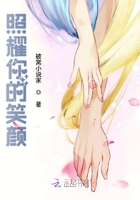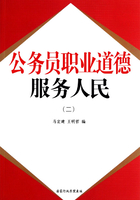How was he to break off his relations with Mary Vasilievna and her husband in such a way as to be able to look him and his children in the eyes? How disentangle himself from Missy? How choose between the two opposites--the recognition that holding land was unjust and the heritage from his mother? How atone for his sin against Katusha? This last, at any rate, could not be left as it was. He could not abandon a woman he had loved, and satisfy himself by paying money to an advocate to save her from hard labour in Siberia. She had not even deserved hard labour.
Atone for a fault by paying money? Had he not then, when he gave her the money, thought he was atoning for his fault?
And he clearly recalled to mind that moment when, having caught her up in the passage, he thrust the money into her bib and ran away. "Oh, that money!" he thought with the same horror and disgust he had then felt. "Oh, dear! oh, dear! how disgusting," he cried aloud as he had done then. "Only a scoundrel, a knave, could do such a thing. And I am that knave, that scoundrel!" He went on aloud: "But is it possible?"--he stopped and stood still--"is it possible that I am really a scoundrel? . . .
Well, who but I?" he answered himself. "And then, is this the only thing?" he went on, convicting himself. "Was not my conduct towards Mary Vasilievna and her husband base and disgusting? And my position with regard to money? To use riches considered by me unlawful on the plea that they are inherited from my mother? And the whole of my idle, detestable life? And my conduct towards Katusha to crown all? Knave and scoundrel! Let men judge me as they like, I can deceive them; but myself I cannot deceive."
And, suddenly, he understood that the aversion he had lately, and particularly to-day, felt for everybody--the Prince and Sophia Vasilievna and Corney and Missy--was an aversion for himself.
And, strange to say, in this acknowledgement of his baseness there was something painful yet joyful and quieting.
More than once in Nekhludoff's life there had been what he called a "cleansing of the soul." By "cleansing of the soul" he meant a state of mind in which, after a long period of sluggish inner life, a total cessation of its activity, he began to clear out all the rubbish that had accumulated in his soul, and was the cause of the cessation of the true life. His soul needed cleansing as a watch does. After such an awakening Nekhludoff always made some rules for himself which he meant to follow forever after, wrote his diary, and began afresh a life which he hoped never to change again. "Turning over a new leaf," he called it to himself in English. But each time the temptations of the world entrapped him, and without noticing it he fell again, often lower than before.
Thus he had several times in his life raised and cleansed himself. The first time this happened was during the summer he spent with his aunts; that was his most vital and rapturous awakening, and its effects had lasted some time. Another awakening was when he gave up civil service and joined the army at war time, ready to sacrifice his life. But here the choking-up process was soon accomplished. Then an awakening came when he left the army and went abroad, devoting himself to art.















